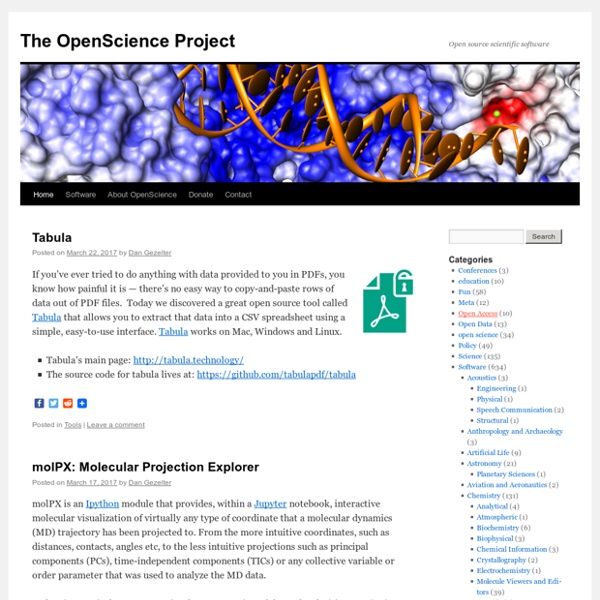



Data Mining from A to Z: Better Insights, New Opportunities Acerca el Documento Hay tantos datos y una gran cantidad de decisiones que tomar. Las organizaciones de todo el mundo se están enfrentando a este dilema. Los datos están creciendo, pero ¿y su capacidad para tomar decisiones de acuerdo con esos enormes volúmenes de datos? ¿También están creciendo? Industrial Biotechnology - Enzyme Innovation - Genencor Our website uses cookies so that we can provide you a better online experience and service; by continuing, you agree to our use of cookies in line with our Privacy Statement Close Playing with data: our ODI open data board game Playing with data: our ODI open data board game For the last six months, on and off, a few of us here at the Open Data Institute have been working on an open data board game. Ellen Broad and Jeni Tennision discuss its development Board games have been experiencing a resurgence in the past few years and, perhaps unsurprisingly, there are several keen board game enthusiasts here at the ODI. The idea of an open data board game was born out of discussions between us about why Monopoly was so awful, our favourite games, and the mechanics that made them work. Open Data Institute, Pre Summit Training Discovery Day, (CC-BY-SA)
Human Genome Project The Human Genome Project (HGP) is an international scientific research project with the goal of determining the sequence of chemical base pairs which make up human DNA, and of identifying and mapping all of the genes of the human genome from both a physical and functional standpoint.[1] It remains the world's largest collaborative biological project.[2] The first official funding for the Project originated with the US Department of Energy’s Office of Health and Environmental Research, headed by Charles DeLisi, and was in the Reagan Administration’s 1987 budget submission to Congress.[3] It subsequently passed both Houses. The Project was planned for 15 years.[4] In 1990, the two major funding agencies, DOE and NIH, developed a memorandum of understanding in order to coordinate plans and set the clock for the initiation of the Project to 1990.[5] At that time, David Galas was Director of the renamed “Office of Biological and Environmental Research” in the U.S.
ROMEO - Research Western ROMEO is an online management system Western uses to manage human research ethics submissions. Western, St. Joseph’s Health Care London and Lawson Health Science Centre researchers/investigators use ROMEO to submit proposed research studies to the office of Human Research Ethics. *Please note: ROMEO is not compatible with Safari; please choose an alternate browser. An Overview of the Human Genome Project An Overview of the Human Genome Project What was the Human Genome Project? The Human Genome Project (HGP) was the international, collaborative research program whose goal was the complete mapping and understanding of all the genes of human beings. All our genes together are known as our "genome." The HGP was the natural culmination of the history of genetics research.
PlumX Metrics - Plum Analytics PlumX Metrics allows you to get more value from an institutional repository (IR) by embedding the altmetrics about your research directly into the IR. These altmetrics are about the different versions of the same article – not just the one in the IR, so your authors can see the impact and reach of their research in just one place. This makes your IR a more valuable place for research and encourages your authors to deposit their articles and other research. Embed metrics where you need them.
Uddan dig gratis på verdens bedste universiteter Normalt koster det 230.000 kroner om året og er forbeholdt verdens bedste studerende. Nu kan du få det helt gratis. Via et nyt onlinesystem kan folk verden over fremover tage uddannelser på en række af USA’s højst ansete universiteter. Traditional and altmetrics - Research Impact & Visibility - LibGuides at Utrecht University Author metrics Open Web of Science and search your name using the 'Author search'-option. Enter your author name, and optionally proceed to select your research domain(s) and organization(s). In the results list, you can opt to view all results, or look at the tab 'Record sets' to distinguish between different authors with the same name and/or multiple entries for your own name (tick the boxes of the appropiate record sets and select 'View records'). You will now see a list with all your publications listed in Web of Science.
Solve Puzzles for Science Open Data Kit